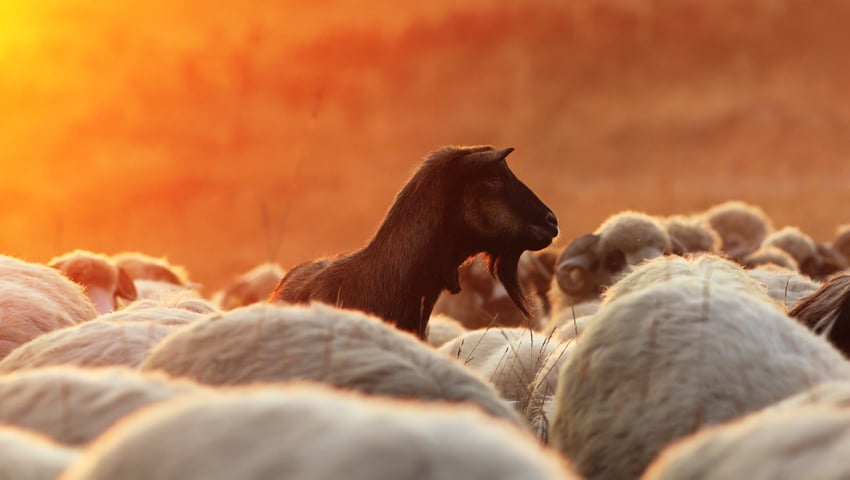A study has found that European[1] dairy small ruminants have not caused additional warming in the 1990-2018 period. The study first used historical data (1990-2018) to compare the contribution of European small dairy ruminants using GWP100 and GWP*, and then later assessed the impact of possible emissions reduction scenarios on future warming.
GWP100 is the standard metric used to assess carbon emissions, but this metric treats all gases as though they behave in the same way as the long-lived carbon dioxide (CO2). GWP* is a revised metric, which accurately characterises the behaviour of stable ongoing emissions of short-lived gases such as methane. The development of GWP* at Oxford University, was led by Professor Myles Allen, a lead author for the Intergovernmental Panel on Climate Change.
The study (The role of the European small ruminant dairy sector in stabilising global temperatures: lessons from GWP* warming-equivalent emission metrics) was published in the Journal of Dairy Research. It found that under GWP100 dairy sheep were responsible for 0.3 gigatonnes (Gt), cumulative across the 1990-2018 period – but that using GWP*, dairy sheep were responsible for -0.1Gt.
For dairy goats the figures were 0.1Gt under GWP100 versus 0.02Gt using GWP*.
The researchers also modelled future emissions-reduction scenarios using the GWP* metric. They found that if emissions were maintained at current levels then this would lead to some additional net warming by the end of the century – but if emissions reduced by ~0.8% (dairy sheep) or ~1% (dairy goats) per year then no additional warming would be observed.
The authors say that the historic reduction in the emissions footprint of the small ruminants’ milk is despite the fact that milk production from small ruminants in Europe has increased steadily (10% for sheep and 25% for goat milk production) in the period 1990−2018 (FAOSTAT).
While there is variance between the warming impact of European dairy goat and dairy sheep systems, the increase in warming from the dairy goat sector has been compensated by the reduction in warming from the dairy sheep sector.
The paper also noted that future emissions reductions could be gained from soil carbon sequestration or feed additives, rather than necessarily stock reductions.
The paper concludes that “Although a number of studies indicate that milk production in Europe has led to large GHG emissions (e.g. Lesschen et al. 2011) and there have been urgent calls to drastically reduce milk consumption (Harwatt, 2019), our estimates indicate that, in terms of historical warming (1990–2018), their conclusions do not apply to small ruminants.”
[1] ‘European‘ as defined by the Food and Agriculture Organisation of the United Nations.
Read the full study here. (The role of the European small ruminant dairy sector in stabilising global temperatures: lessons from GWP* warming-equivalent emission metrics Del Prado A, Manzano P, Pardo G. The role of the European small ruminant dairy sector in stabilising global temperatures: lessons from GWP* warming-equivalent emission metrics. J Dairy Res. 2021 Feb;88(1):8-15. doi: 10.1017/S0022029921000157. Epub 2021 Mar 5. PMID: 33663634.)
